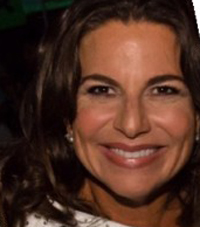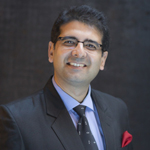
Other items in today’s column include:
*Around the county
*Yom HaShaoh home programming
*Political bytes


SAN DIEGO —Melissa Rubenstein Levin, who worked for Drasnin Communications in San Diego from 2000 to 2002, is now based in Houston, where she is handling publicity for IndieFlix. That production company recently issued three films. Angst, which includes an interview with Olympic swimmer Michael Phelps, deals with understanding anxiety disorders; Like “explores the impact of social media on our lives and the effects of technology on the brain,” and The Upstanders, which I recently watched, “explores cyber-bullying,” as can be seen in the trailer above.
The full version of The Upstanders is built around the story of young David Molak of San Antonio, Texas, who told his parents that he was being cyber-bullied. They took him to a therapist, even changed his schools, but the cyber-bullies followed him, making him feel worthless, until one day he slipped out of his house, and hanged himself from a tree in the backyard of his home.
His death led to the adoption in Texas of David’s law, which permitted courts to punish cyber-bullies by fining them, or requiring them to perform community service,and clearly set forth the standard that not only are school bullies responsible for their actions but so too are their parents.
The documentary weaves around David’s story comments by psychologists, teachers, and parents about what causes people to become bullies, what can be done to counteract such an instinct, and how children who are bullied can begin to recover.
Some takeaways: Children often bully others in order to feel powerful, or to feel seen or heard.
–The anonymity of the Internet makes it easier for them to be mean without really understanding the consequences.
–Bystanders who see bullying can play an important role. They can call up the bullied children and let them know that they have friends, and that they are appreciated.
–Meditation and mindfulness can help children center themselves — reset their brains — so that they neither desire to be bullied, nor overreact if they are bullied.
–Schools can implement “kindness faxes” in which students are celebrated for doing something kind or upstanding.
–Technology can be added to social media platforms that ask senders who use trigger words in messages, “Do you really want to send this?” providing them an opportunity to rethink the situation, and tell themselves, “I want to be better than this.”
–Parents whose children are bullied can start conversations with telling the children some of the things they love about them, and they can tell the children about times when they, the parents, also felt powerless or vulnerable.
*
Around the county
*El Cajon resident Don Chafetz, editor of The Israel Philatelist, shared a letter from his brother Mel Chafetz about the attempted arson at the Jewish Nursing Home known as Ruth’s House in Longmeadow, Massachusetts. The rabbi at Sinai Temple, where his brother worships, , Rabbi Jeremy Master, messaged: “A local man has been arrested for attempting to set our beloved Ruth’s House afire. Why Ruth’s House? Because this person was looking to harm and even murder Jews. In this time of global pandemic when we, as a country and as a world, are undergoing massive shifts in lifestyle to preserve and protect life, anti-Semitism remains a threat–and in this case–to the most vulnerable. A genuine Amalek of our time — one who would attack the “rear of the camp” — the elderly and the infirm — this local individual, whose actions speak to behaviors that cross space and time, has been released on house arrest, awaiting trial. how despicable.” The rabbi cautioned the Jewish community that “we must always watch out for one another — to do so is a deeply embedded Jewish value.” Subsequently Federal Judge Mark Mastroianni reversed the decision of Judge Katherine A. Robertson to allow the suspect, John Michael Rathbun, to await trial at home. Congratulating Judge Mastroianni, James Kaufman and Robert Leikind, respectively the New England president and director of the American Jewish Committee, commented: “In the current climate Jewish people face real threats from people who mean them harm.”

*The Jewish Community Foundation of San Diego will sponsor a webinar on “The extreme needs among vulnerable populations at 12 p.m., Tuesday, April 21, viewable by anyone who registers here. Panelists will include Greg Anglea of Interfaith Community Services; Paul Downey of Serving Seniors, and Anahid Brakke of the San Diego Hunger Coalition.
*Joe Gandelman added his high school graduation photo to the legions who are doing so to salute the Class of 2020 which, because of the coronavirus pandemic, don’t get to hold their own ceremonies.
*
Yom HaShoah home programming
*The Jewish Federation of San Diego County sponsors five web talks between Sunday, April 19, and Tuesday, April 21, on Holocaust related subjects. Each requires registration, which may be done by clicking on the respective links. Holocaust Survivor Ben Midler tells of his life at 12:30 p.m., Sunday, April 19. Steven Schindler, Nicole Nocon and Antonia Nocon discuss “Developing Global Leaders in Action: at 12:30 p.m., Monday, April 20. Rabbis Ralph Dalin and Scott Meltzerofficiate a Yom Hashoah Remembrance Ceremony at 7:30 p.m, Monday, April 20. Representatives of The Butterfly Project discuss “Sharing Our Families’ Stories” at 1 p.m., Tuesday, April 21. High School student Talia Schauder tells her grandfather Paul Schauder’s‘ survival story at 3 p.m., Tuesday, April 21.

*Navras J. Aafreedi, an Indian scholar who specializes in Muslim-Jewish relations in South Asia, is an occasional contributor to San Diego Jewish World. He will lecture about “Holocaust Denial, Minimization, Inversion and Trivialization in South Asia,” at 8:30 a.m., Tuesday, April 21, in a web talk sponsored by the Canadian Antisemitism Education Foundation. Click here to register.
*
Political bytes
*City Councilwoman Barbara Bry chairs San Diego’s Budget Review Committee on the City Council. With major cuts looming as a result of the coronavirus pandemic, Bry said she is unhappy with preliminary recommendations for cuts that have come from Mayor Kevin Faulconer’s office. “The budget must be, first and foremost, based on responding to the community’s needs, not on maintaining the City bureaucracy,” she messaged. “It’s disappointing to me that most of the proposed budget reductions are in neighborhood services, while bloated management is mostly untouched.” Bry is opposing Assemblyman Todd Gloria in the Nov. 3 mayoral election.
*
Donald H. Harrison is editor of San Diego Jewish World. He may be contacted via donald.harrison@sdjewishworld.com